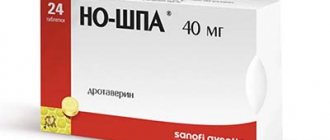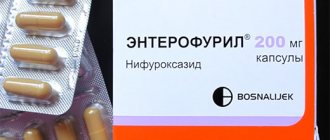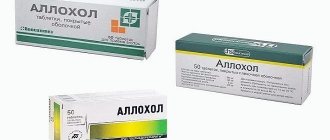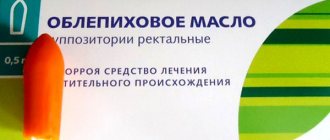Progesterone injections to induce menstruation: instructions, reviews and list
Medical portal
- Haemorrhoids
- ENT diseases
- Bowel diseases
- Pancreatitis
- Weight loss
- Allergy
- Analyzes
- Pregnancy
- Vein diseases
- Blood diseases
- Kidney diseases
- Prostate diseases
- Back diseases
- Thyroid diseases
- Hernias
- beauty
- Migraine
- Papillomas
- Cold
- Injuries
- Urological diseases
Photo
Progesterone injections can be used to induce menstruation if there is a delay not related to pregnancy. The drug is quite common, you can buy it at any pharmacy, but you must remember that there are contraindications to the use of the drug.
How does a woman’s menstrual cycle depend on progesterone?
Progesterone is a female sex hormone produced by the ovaries. It stabilizes many functions in the female body, provokes its preparation for pregnancy and promotes normal childbearing.
In the absence of conception, a normal level of progesterone is also necessary - it affects the normal course of menstruation, the functioning of the ovaries and the maintenance of the functionality of the female body. If there is a shortage of it, the girl begins to notice unnatural changes that are provoked by hormonal imbalance, gynecological diseases begin to develop, as well as disruptions in the menstrual cycle and other unpleasant symptoms.
Periodic delays are a good reason to contact a medical facility and undergo a proper examination.
The following factors can provoke hormonal imbalances:
- Unfavorable climatic conditions;
- Persistent emotional disturbances;
- Inappropriate use of drugs containing hormones;
- Malnutrition, constant low-calorie diets;
- Work in hazardous industries with chemical elements or radiation;
- Diseases affecting the reproductive organs.
After determining the cause that caused the disruption of hormonal levels and the delay of menstruation, the doctor will determine whether treatment is necessary in this case. Often, to restore the normal amount of progesterone, special injections with a drug containing this hormonal element are used.
Adverse reactions
Every drug has them, without exception. There are a number of side effects from Progesterone injections. These include:
- The appearance of fluctuations in blood pressure.
- The occurrence of vomiting and nausea, which is caused by impaired liver function.
- Frequent use of the medication may affect weight gain.
- The occurrence of spotting discharge from the vagina.
- The appearance of headaches and dizziness.
- The occurrence of unpleasant sensations in the mammary glands.
View gallery
Now let’s find out what they write about injections from women who used them to induce menstruation, as well as those who received injections during pregnancy due to a deficiency of this hormone in the body.
What is progesterone
As we have already figured out, progesterone is one of the most important female sex hormones, which is responsible for the normal course of pregnancy, ovarian function, the formation of the endometrium (the protective layer of the uterus) and the stabilization of the menstrual cycle. When it is deficient, unnatural and unfavorable processes begin to occur in the body, which can provoke the development of gynecological diseases and menstrual cycle disorders.
To stabilize hormonal levels and eliminate unpleasant disorders of women's health, doctors prescribe the use of progesterone in ampoules, which is introduced into the body through intravenous injections. Its action, relative to the tablet form of hormonal drugs, occurs almost immediately as the contents of the ampoule enter the body.
Pharmacodynamics and pharmacokinetics
Progestogen is a steroid hormone that is produced in the body by the corpus luteum of the ovaries .
The mechanism of action of progesterone drugs is associated with their ability to interact with specific progestin receptors, which are located on the surface of target cells.
By binding to them, the substance penetrates the cell nucleus, activates deoxyribonucleic acid and stimulates the synthesis of ribonucleic acid.
The effect on a woman’s body is that the drug:
- stimulates the transition of the endometrium (the mucous layer of the inner mucous membrane that lines the body of the uterus) from the proliferative phase, which coincides with the ovulatory and follicular phases of the ovarian cycle, to the secretory phase;
- creates optimal conditions for embryo , reduces the sensitivity of the uterus and fallopian tubes to the action of oxytocin and has a tocolytic effect;
- stimulates lipoprotein lipases ;
- increases body fat reserves;
- helps increase the level of induced and basal (background) insulin glucose utilization ;
- enhances the accumulation of glycogen in the liver;
- stimulates the synthesis by the adrenal cortex of the mineralocorticosteroid hormone aldosterone ;
- provokes hypoazotemia ;
- increases the excretion of nitrogen-containing metabolic products in the urine;
- suppresses the production of a number of hypothalamic factors for the release of luteotropin (LH) and follicle-stimulating hormone (FSH) and, accordingly, the biosynthesis of pituitary gonadotropic hormones ;
- reduces the permeability of the capillary wall in the tissues of the mammary glands;
- reduces swelling of the connective tissue framework, depending on the phase of the menstrual cycle ;
- suppresses the proliferative and mitotic activity of ductal epithelial tissue (in the case when progesterone is used in the form of a gel).
When taken orally, intravaginally using the drug in capsules, or injecting an injection solution under the skin and into the muscle, the substance is quickly absorbed. When applied to the skin in gel form, it is almost not absorbed and does not enter the systemic circulation.
The maximum plasma concentration when taking the tablet orally is observed after 1-3 hours; with intravaginal application, this figure is achieved after 2-6 hours.
protein binding (mainly albumin (approximately 50–54%) and 43–48% corticosteroid binding globulin ).
In the liver, the substance is biotransformed into inactive metabolites (mainly pregnanediol and pregnanolone ).
From 50 to 60% of the substance is eliminated by the kidneys , more than 10% - with bile ; Progesterone metabolization products excreted in bile intestinal and can undergo enterohepatic recirculation .
Mechanism of action
The mechanism of action of progesterone in injections is no different from other drugs containing hormones. After it enters the body, it begins to interact with protein elements, and then spreads into the cell nuclei and begins to provoke the synthesis of individual proteins, which restore the functioning of many necessary processes in the woman’s body.
Restoring progesterone levels contributes to the following beneficial changes:
- Prevents the development of uterine hemorrhages;
- Provokes the rapid formation of a protective mucous layer in the uterus (endometrium);
- Restores ovarian function;
- Normalizes the menstrual cycle;
- Prevents contraction of the fallopian tubes and uterus (during pregnancy);
- Helps accumulate the required amount of glucose in the liver;
- Creates the most optimal conditions for further conception of a child.
Despite the many positive effects that appear after injection with Progesterone, using this medication on your own is strictly prohibited. Its inappropriate use can only cause the condition to worsen.
How to use the drug
The required dosages, duration of use and frequency of administration of the drug are determined after diagnostic measures.
The main methods for using progesterone in injections to induce menstruation are as follows:
- If uterine bleeding develops, injections are given daily for a week.
- After curettage, the treatment period is 3 weeks.
- In case of prolonged absence of menstruation, the course of intervention begins with the use of medications that contain estrogen. This helps to cause the permissible volume of endometrium to accumulate in the cavity. After this, progesterone injections are given daily for 1 week.
- With increased expressiveness of painful sensations, progesterone is also used. In this case, it is advisable to start administering the drug 8 days before the expected date of bleeding.
The given treatment methods can be adjusted by the attending physician taking into account the patient’s condition.
Indications
Doctors can prescribe the use of a pharmacological drug in the following cases:
- menstruation is completely absent for several periods;
- uterine hemorrhages are observed between menstruation;
- menstrual flow is too heavy;
- excessively short or long periods;
- there is severe pain in the lower abdomen during menstrual periods;
- it is not possible to conceive a child or spontaneous abortions often occur;
- insufficient production of female sex hormones by the ovaries;
- gynecological diseases.
Progesterone is also prescribed to induce menstruation in case of systematic delays.
Use in pregnant women
During the period of bearing a child, injections containing hormonal elements are indicated only if there is a possibility of spontaneous abortion. At 35 weeks and beyond, injections of Progesterone are strictly prohibited. Otherwise, the expectant mother exposes her child to a huge risk of developing many congenital pathologies.
Indications for therapy
The main indication for steroid injections is amenorrhea - the absence of menstruation for six cycles in a row. In addition, hormonal therapy can be carried out for painful periods, intermenstrual bleeding, threat of miscarriage or premature birth, incipient menopause, fibrocystic mastopathy.
Treatment is prescribed based on the diagnosis, which includes the following measures:
- Consultation with a gynecologist.
- Biochemical analysis of venous blood confirming hormone deficiency (performed on days 21-22 of the cycle).
- Ultrasound of the ovaries, adrenal glands and other endocrine glands according to indications.
- Urine analysis for pregnanediol content.
- Instrumental studies of the brain and internal organs if necessary.
Contraindications
Progesterone should not be used to induce menstruation if the following pathologies progress in the patient:
- oncological diseases affecting the reproductive organs and mammary glands;
- severe disturbances in the functioning of the liver;
- hepatitis;
- atherosclerosis;
- diseases of the cardiovascular system;
- high blood sugar (diabetes);
- allergy to components that make up the drug;
- persistently high blood pressure;
- periodic and intense headaches (migraine);
- epilepsy;
- serious emotional disturbances.
Also, the use of synthesized hormone in ampoules is not recommended if the girl is planning a pregnancy or the pregnancy period exceeds 36 weeks.
Contraindications for treatment with progesterone injections
Synthetic progesterone is a powerful drug that can cause significant changes in the patient’s body. Before prescribing the drug, you should study the woman’s health status and determine the threats that arise after injections. Contraindications to treatment with progesterone injections are:
- the presence of malignant neoplasms;
- hepatitis and other serious liver diseases;
- vein thrombosis, problems with the circulatory system;
- diseases of the heart and blood vessels;
- diabetes;
- high pressure;
- epilepsy;
- migraine and severe headache;
- allergic reaction to increased levels of progesterone;
- nervous system disorders.
Side effects after treatment with progesterone injections often occur in patients who have not undergone a preliminary examination of their health status and hormonal levels. According to reviews, the drug causes in patients:
- sleep disturbance;
- nervous tension;
- headache;
- nausea;
- swelling, weight gain;
- decreased libido;
- bitterness in the mouth;
- state of apathy;
- breast tenderness, breast enlargement.
This once again confirms that the specialist is obliged to initially determine the patient’s hormonal background, and only then prescribe treatment with progesterone injections.
Side effects
Despite the high effectiveness of the drug, its use can lead to the following side effects:
- sudden changes in blood pressure;
- decreased sex drive;
- the appearance of vomiting and nausea;
- weight gain;
- a feeling of discomfort, pain, a feeling of heaviness localized in the chest;
- unreasonable depression, excessive irritability;
- unnatural discharge from the vaginal cavity.
If such symptoms appear, you should consult with your doctor, who will tell you whether to continue treatment.
Names of medications
The following two drugs are in greatest demand:
- The drug "Duphaston", the main active component of which is synthetic progesterone, produced in the laboratory. This drug has passed all clinical trials, confirming its high effectiveness. The drug "Duphaston" can help if the level of this hormone has not fallen too low. The drug is available in the form of tablets and also in the form of vaginal suppositories.
- The drug "Utrozhestan" is an analogue of "Duphaston", but at the same time it differs significantly from it. The difference is that this product is made on a plant basis. It is because of this that it is considered preferable, since it has fewer contraindications and adverse reactions. Like Duphaston, Utrozhestan can be taken orally or vaginally.
View gallery
Despite these benefits, all previously mentioned medications are systemic. That is, they require a long reception time. If there is a threat of miscarriage, which is caused by a sharp decrease in progesterone levels, such medications will not be able to help. This is when Progesterone injections can demonstrate their effectiveness and reliability.
The active substances of the solution quickly spread throughout the body, gradually break down and relieve dangerous symptoms. It has been proven that one hour after intramuscular injection, the amount of progesterone stabilizes. The maximum concentration of the hormone is reached after six hours. It is also important to emphasize that the injection of this substance is painless, unlike antibiotics or antiviral drugs.
How to administer Progesterone injections according to instructions?
Injection scheme
If your period of critical days is delayed by 2-5 days, then you do not need to inject progesterone. Due to the hormones it contains, this is fraught with unpleasant consequences and only worsens the condition.
If a specialist has determined a deficiency of the sex hormone, the instructions for use will depend on the provoking cause. The injection schedule is as follows:
- a minimal deficiency of a hormonal element requires 4-6 injections of a one percent solution, which is administered every day;
- 6-11 injections of a 2.5% percentage of the drug will help eliminate a more serious progestogen deficiency and induce menstruation. It also needs to be introduced into the body once every day.
It is strictly forbidden to determine the dosage yourself. The daily dose of medication and the duration of therapy should be prescribed exclusively by a doctor based on the results of the examination and the existing individual characteristics of the patient’s body.
Treatment regimen
Effective correction of hormonal disorders requires an integrated approach. Thus, at its initial stage, all possible causes that can lead to a deficiency of steroid synthesis are eliminated: treatment of diagnosed diseases and their complications, making necessary changes in lifestyle.
Progesterone injections for delayed menstruation, amenorrhea or other symptoms of hormone deficiency are usually prescribed according to the standard regimen:
- the injection is administered once a day or every other day;
- the daily dose of the active substance should not exceed 25 mg;
- the course of treatment is 6-8 days.
The exact treatment regimen and dosage of the drug is determined by the doctor based on the clinical picture, test results, diagnosed diseases and possible complications. If the disruption of steroid production is minor, a one percent oil solution is usually used. If a serious hormonal imbalance with associated pathologies is detected, progesterone injections at a concentration of 2.5% are used to induce menstruation.
In addition, the following rules are observed during treatment:
- If the production of progesterone is accompanied by a violation of the synthesis of other hormones or diseases of the genital organs, estrogen is prescribed at the same time.
- To induce menstruation after curettage, injections begin after 18-20 days.
- For irregular painful menstruation, therapy begins about a week before the start of menstruation.
- Injections can be administered only if the hemoglobin level is normal (if the level is reduced, medications are first prescribed to normalize it).
- As an auxiliary therapy, doctors recommend following a diet based on foods rich in zinc and selenium.
With the correct dosage of the drug, menstruation should come within 3-5 days after completion of the injections. In most patients, the cycle is completely restored after the first course of hormonal therapy. If treatment is completed and there is no menstruation, the injections are re-prescribed in the next cycle, and additional examination is carried out if necessary.
Many women wonder why menstruation does not come, and the drug does not help everyone. Most often this happens due to incorrect dosage and concentration of the active substance, as well as the presence of certain diseases.
The drug should be taken only under the supervision of an endocrinologist or gynecologist. Unauthorized changes in dosage or duration of treatment are prohibited. Before starting therapy, you should warn your doctor about all existing disorders and medications used, especially hormonal ones.
When does your period start?
Many women are often interested in the question of what day after Progesterone injections their periods begin. Unfortunately, there is no exact answer to this question. The effect of the drug depends entirely on the girl’s body, its individual characteristics and the presence of gynecological pathologies. Based on statistical observations, menstruation will begin already on the 3rd day after the start of treatment. In some cases, with a more serious hormone deficiency, menstruation comes only after completing the full course of treatment prescribed by the gynecologist (usually 8-12 days).
If menstruation does not begin after progesterone, you should contact a qualified specialist who will conduct repeated diagnostic tests and explain the reason for the ineffectiveness of the drug and why there is no menstruation.
The absence of menstrual flow may mean the progression of serious diseases in the body that affect the functioning of the reproductive organs. In this case, the gynecologist will prescribe treatment that will help get rid of the present pathology. After therapeutic measures, if menstruation does not come and the level of progestogen also remains low, the doctor prescribes a second course of Progesterone administration.
Progesterone for delayed menstruation
Reviews of progesterone injections for delayed periods, which are left on women's and medical websites by patients and experts, say that this remedy is effective in 89% of cases of its use. This is due to the fact that the main active substance of the injections is a synthetic analogue of progesterone, which maximally recreates its effect when it enters the body.
This component is contained in an oil solution (refined olive, peach, almond oil), which can be seen in the instructions. For different situations, different concentrations of progesterone are used: 1 - percentage, 2 and 2.5.
To avoid overdose and adverse reactions, you should first take a blood test to determine the content of the main hormones in order to exclude possible contraindications and receive advice and prescribe the required concentration and duration of injections.
Progesterone injections help induce menstruation as quickly as possible if the delay is due to certain physiological conditions of the female body or hormonal imbalance due to such reasons:
- Stress experienced.
- Endocrinological disorders.
- Physical exercise.
- Wrong lifestyle.
- Low or excessive body weight.
- Incorrectly selected hormonal contraceptives or their abuse.
At the first and minimal delay of menstruation, you should not panic and immediately resort to such drugs. The first thing you need to do is take a pregnancy test. When it is excluded, you should wait up to 5 days, as the cause may be one of the above factors. If menstruation does not begin after this period, then you should consult a doctor: with the help of tests, he will determine the cause, the concentration of sex hormones, and in case of imbalance, prescribe therapy that will correct the hormonal balance.
Precautionary measures
There are no precautions as such when using Progesterone. The main thing is not to self-medicate. Be sure to visit a doctor who, based on the results of a diagnostic examination, will determine the required daily dosage of the drug and the duration of the course of treatment. Also, before starting therapeutic measures, the doctor must study your medical history to make sure that diseases are not progressing in the body, for which the introduction of a hormonal drug into the body is strictly prohibited.
Reviews about Progesterone
The largest number of reviews about the drug can be found on special forums dedicated to the problem of female infertility.
Most women who have had difficulty conceiving and bearing a child note the effectiveness of Progesterone, even in cases where the patient suffered several miscarriages before starting a course of using this drug when another pregnancy occurred. That is, in some cases, Progesterone is the only chance to save a pregnancy.
However, there are also negative reviews about the drug. They are associated with a fairly large number of side effects of the drug and the presence of contraindications to its use. In addition, some of the women treated with Progesterone did not notice any effect from the prescribed therapy.
Be that as it may, as is the case with other medications, self-medication with progesterone preparations is unacceptable. You can begin a course of use only after a comprehensive examination and based on test data.
Taking the hormone without injections
The pharmacological agent Progesterone, used for delayed menstruation and other disorders caused by hormonal imbalance, is available in several forms:
- pills;
- ampoules;
- gel.
You can use any type of this drug, but most often medical professionals prescribe a solution that is administered intramuscularly or intravenously. This is explained by the fact that with injections the effect of the medicine can be observed much faster.
When are injections needed?
Medical tests can help identify the underlying cause and determine whether progesterone will help with a missed period.
There are a lot of factors that influence the delay of menstruation - from a lack of vitamins to serious gynecological pathologies.
If the main cause of delay is hormonal imbalance, progesterone can provoke menstrual bleeding.
But you should remember that this is not a panacea and you can use a remedy to induce menstruation only after examination.
The drug is often prescribed for the following pathologies:
- amenorrhea and oligomenorrhea;
- lack of ovulation;
- to prevent miscarriages.
Amenorrhea involves the absence of menstruation in a girl of childbearing age for several cycles.
Gynecologists diagnose the pathology if a girl does not have menstruation for 3 cycles.
The diagnosis is definitively confirmed if function is not restored after 6 months. The phenomenon of amenorrhea is normal during the postpartum period.
This is primarily due to a critical drop in hormone concentrations. The fact is that prolactin is a lactation hormone and it actively suppresses the activity of most female hormones.
Failure to implant an egg and lack of ovulation are common factors in the inability to achieve the desired pregnancy.
A lack of progesterone is extremely dangerous, since the egg cannot fully mature because ovulation does not occur.
Menstrual bleeding in this situation begins even if pregnancy occurs, but the outcome is spontaneous miscarriage.
Progesterone injections at a dosage of 2.5 units can prevent early miscarriage and are used to restore ovulation.
When the need arises to use progesterone injections, the instructions and reviews do not advise doing this on your own, because there are contraindications.
Injections of the drug can only be made in regulated dosages and under the supervision of a specialist.
Despite the high effectiveness of the substance, in some cases injections do not help restore menstruation. In such cases, repeated examination is indicated:
- Instrumental examination.
- Taking an anamnesis (the presence of miscarriages, terminations of pregnancy, childbirth plays a role in making a diagnosis).
- Ultrasound of the pelvic organs.
- Repeated hormone tests.
The advisability of extending the course of therapy is determined strictly individually.
If no pathologies are identified during the examination, treatment can be extended indefinitely.
When to expect your period after the injection?
It is quite difficult to answer the question exactly when menstruation will begin after an injection of Progesterone. Much in such situations depends on the individual characteristics of the female body, accompanying pathological processes, reaction to a synthetic hormone and other factors. In general, in the absence of any deviations, critical days come on the third day after treatment is started. Sometimes, with a severe lack of progesterone, the onset of menstruation is noted only after the completion of the full therapeutic course - usually on days 8-12.
If your period does not come, it is recommended to visit a specialist. Repeated diagnostics are prescribed, with the help of which the cause of the ineffectiveness of the drug is established.
Popular analogues of the drug
Analogs of the drug are produced by a number of pharmaceutical companies and have a different branding.
Before using the drugs listed below, you must consult a specialist. These medicinal analogues can be used for delayed periods as an alternative to Progesterone. Doctors often prescribe analogues for a second course of treatment if Progesterone does not produce a noticeable positive result.
What alternative products containing a similar active ingredient do doctors prescribe to their patients? The most popular include:
- Duphaston. It is, in fact, synthetic progesterone and has very similar properties to the natural hormone. Does not have side hormonal activity. It is well tolerated by patients, without causing fever or fluid retention.
- Utrozhestan. This medication contains micronized progesterone of natural origin. The drug is available in pills.
- Crinon. The progesterone contained in this drug is in the form of a vaginal gel. A polymer delivery system that binds to the vaginal mucosa allows progesterone to be continuously released. This is due to the long-lasting effect of the drug (about three days).
A correctly selected synthetic hormone treatment regimen, including a adjusted dose of medication, can cause menstrual periods. But only a specialist can make a qualified decision, taking into account the many characteristics of a particular patient’s body.
Progesterone injections to induce menstruation: reviews. What if your period hasn't started?
Progesterone injections are prescribed to those patients in whom, based on the results of laboratory testing of biological material, an insufficient concentration of the hormone was revealed.
This hormone, which is introduced into the body of patients through injections, is of synthetic origin.
Thanks to such injections, specialists are able to quickly eliminate various disorders of the reproductive system in patients.
Many patients who have been given a terrible diagnosis of infertility undergo complex drug treatment, which includes progesterone injections. The synthetic hormone is often prescribed to patients who have menstrual irregularities. An individual treatment regimen is developed for them, which allows them to normalize the functions of the reproductive system.
Progesterone injections to induce menstruation
For many patients who experience a delay in menstruation, specialists prescribe progesterone injections. Before drug therapy, the patient must undergo a laboratory examination, which will help the doctor determine the concentration of the hormone in her blood.
Read about how to properly take a progesterone test.
To avoid unpleasant consequences, the dosage of the drug should be determined only by a doctor. In order to induce menstruation, patients are prescribed progesterone injections at a certain concentration: 1.0%, 2.0%, 2.5%. The administered drug is a solution of oil (olive or almond) that contains a synthetic hormone.
After how many progesterone injections do menstruation begin?
Many patients believe that it is enough to take several injections of progesterone to normalize the cycle (menstrual).
They are deeply mistaken, since the dosage and duration of drug therapy directly depends on the characteristics of the female body and the general condition of the patient.
That is why you should not take medications independently and recklessly without consulting a highly specialized specialist.
If patients do not have any serious pathologies or diseases of the genitourinary system, then in most cases the gynecologist will prescribe a traditional regimen of progesterone injections.
Every day the patient will need to receive injections, introducing a certain dose of a synthetic hormone into her body. The course of such therapy lasts 7 days.
During this period of time, the female body is able to fully recover.
After a progesterone injection, how long does it take for menstruation to start? Usually, after stopping taking the drug, patients, as a rule, begin to have not too heavy menstrual flow.
Another regimen for taking progesterone involves appropriate injections, which are administered intramuscularly every other day.
In this case, the female body is given the opportunity to independently determine what dose of the hormone will be sufficient to start menstruation.
During progesterone injections, some patients may experience nausea, weakness, lethargy, etc. Their blood pressure may rapidly increase or decrease.
If such side effects are detected after the first injection, you should urgently consult your doctor. The specialist will determine the cause and possibly adjust the treatment regimen or prescribe another drug containing synthetic progesterone.
What to do if there is no period after progesterone injections?
If after a certain number of injections of synthetic progesterone the patient does not start menstruation, then she should contact her doctor. The specialist will examine the patient and if he does not detect any pathologies, he will prescribe an additional course of injections, after which the long-awaited discharge will begin.
Progesterone injections to induce menstruation: reviews
Many patients, after a series of progesterone injections to induce menstruation, leave their reviews on specialized Internet resources. You can also leave your review on our portal, through the special form at the end of the article.
In most cases, patients are completely satisfied with this drug therapy. They note that already on the 5-6th day after the first progesterone injection, their periods began. But there are also those patients who have completed a course of progesterone injections and in whom no changes have occurred in the body.
Most patients who induced menstruation with progesterone injections note that, despite the fact that this drug can be administered subcutaneously, they decided on intramuscular injections. This is due to the fact that injections into muscle tissue are not accompanied by too much pain.
It is also worth noting that progesterone exists not only in injections, but also in tablets. But to achieve a good result, experts recommend abandoning oral medications in favor of injections.
Source: https://mirmam.pro/planirovanie/ovulyatsiyamenstruatsiya/nedostatochnaya-koncentraciya-gormona











